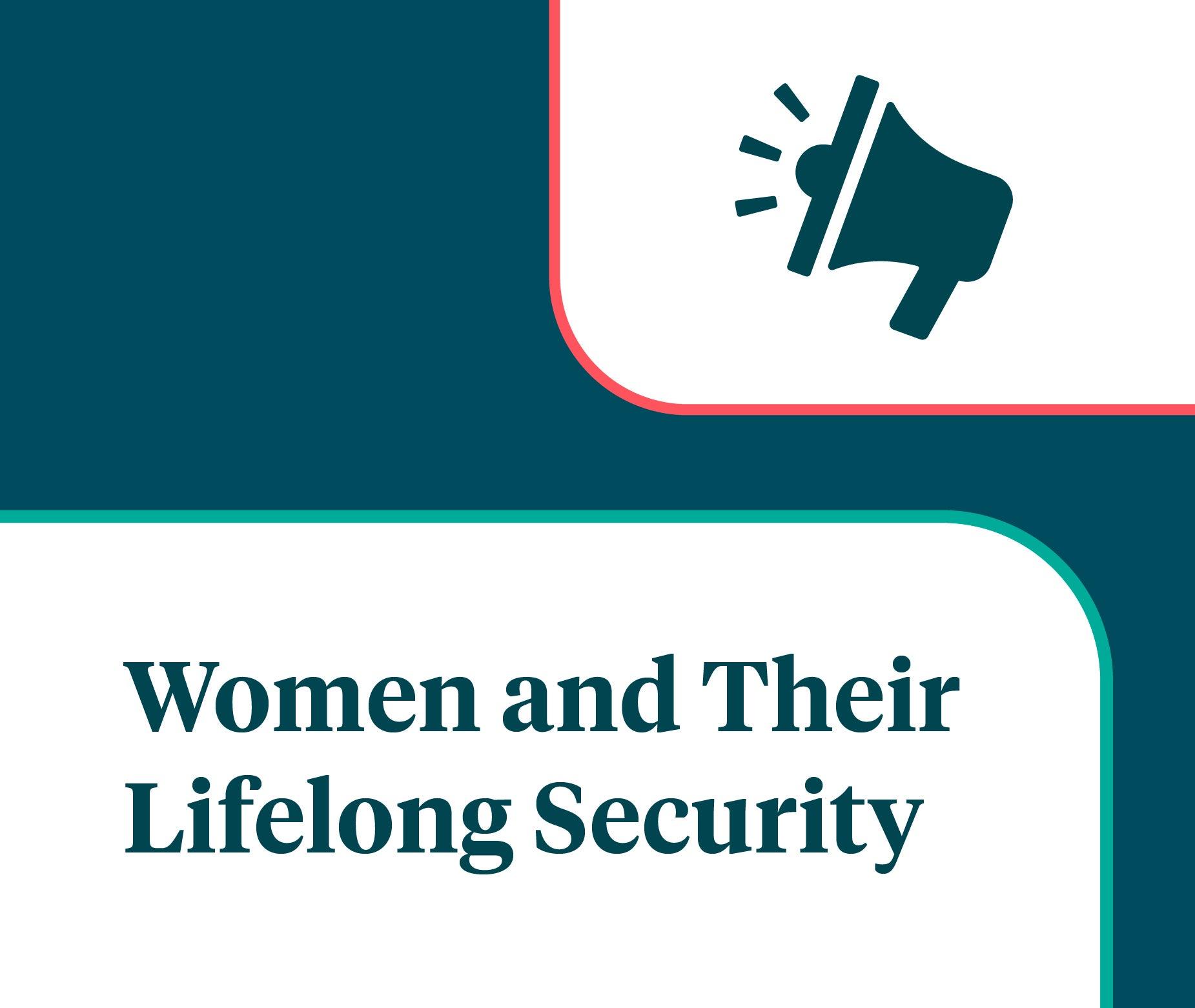What Women Say
Whether a woman can age well starts early—long before retirement age. Across the lifespan, women face barriers to achieving health and economic security. Our new research confirms it. Read results from What Women Say, a new national survey from NCOA and the Women's Institute for a Secure Retirement finding a majority of U.S. women ages 25+ are struggling financially today, and support bipartisan policy solutions to help.

With years of earning less and taking time off for caregiving, women enter retirement at a major disadvantage. That's why NCOA and the Women's Institute for a Secure Retirement (WISER) conducted What Women Say®, national surveys to hear from women themselves about their concerns and worries—and to understand what policy solutions they think would help.
The results, which this year show women are even less confident about being financially secure or having the information they need to prepare for retirement, provide a clear bipartisan call to action to ensure women's lifelong security.
"Health and financial security are the bedrocks of a good quality of life—regardless of age,” said Ramsey Alwin, NCOA President and CEO.
It’s troubling to hear that women across the lifespan—especially those with lower incomes—continue to struggle, making it extremely difficult for them to prepare for retirement. We must do more to ensure every woman has the resources to age well.”
How women really feel about their lifelong security
For the second year in a row, What Women Say®: Insights and Policy Solutions for Lifelong Security, conducted by the bipartisan team of Public Opinion Strategies and Lake Research Partners, demonstrates the fears and concerns women have when it comes to being financially prepared for retirement. The 2024 survey also asked a new set of questions about health.
Across generations and across party lines, women have real concerns about their ability to age well in America.
Key health findings from What Women Say:
- From a list of words, women most often select “uncertain” and “worried” when asked how prepared they are for health costs later in life.
- Women rate their general health worse than their mental health, and low-income and rural women rate their general and mental health a net negative.
- In the past year, roughly 1 in 3 women report having experienced delays in access to health care or food insecurity issues, and 1 in 5 report delays in filling prescription medicines.
- Women view having a low-income as the most negative influence on a person’s health. Being a woman, having a low education, and being Black or Hispanic are also viewed as net negatives.
Key financial security findings from What Women Say:
- Less than half (49%) of women and only one-third of rural women report having saved for retirement.
- Majorities report they are not financially secure, including 79% of low-income women and 67% of rural women.
- Low-income white and Hispanic women report their financial security to be worse compared to last year.
- More than 7 in 10 low-income women say they are not confident about their ability to plan and save for retirement.
- Roughly one-third of all women and half (49%) of low-income women say their retirement income or savings will not be enough to pay their monthly bills—an increase from 2023.
Policy solutions that could help women as they age
The survey asked women to express their level of support for 12 potential policy solutions. Across party and demographic lines, vast majorities of women supported the solutions. The top eight:
Medicare proposals
- Expand Medicare coverage, so beneficiaries have access to the full range of care and treatments for serious chronic diseases. (95% total support)
- Improve Medicare and Medicaid to better ensure that older adults have the option to receive care at home rather than having to go into a nursing home. (94% total support)
- Strengthen Medicare efforts to help low-income older adults sign up for benefits they are eligible for but are not currently receiving. (94% total support)
- Strengthen Medicare by adding health promotion and disease prevention programs to help people better manage their chronic diseases, lessen their risk of falls, and reduce social isolation. (94% total support)
Non-Medicare proposals
- Provide a tax break to family caregivers to help cover the out-of-pocket costs of providing care to a seriously ill, disabled, or elderly loved one. (96% total support)
- Modernize and update the federal Supplemental Security Income program that pays monthly benefits to people with limited income and resources who are disabled, blind, or age 65 or older. (94% total support)
- Provide government assistance to lower income older adults to help pay for basic needs, such as food, housing, and transportation. (93% total support)
- Address elder care and disability care workforce shortages by ensuring that home care workers receive a livable and competitive wage of at least $18-$20/per hour along with health insurance, retirement, and other key employment benefits. (92% total support)
What Women Say 2024 survey downloads
For more information about the 2024 survey, including the methodology, read the results in full below or download the key highlights:
- Survey Results Presentation (download PDF)
- Survey Key Highlights (download PDF)
- Press release
If you're a member of the press and have a question about the survey, please contact us at press@ncoa.org.
What Women Say 2023 survey
Two What Women Say surveys conducted in 2023 showed financial security is an ongoing concern among women.
What Women Say 2023 survey downloads
For more information about the two 2023 surveys, including the methodology, read the results in full below or download the key highlights:
- 2023 Survey Results Presentation (download PDF)
- 2023 Survey Key Highlights (download PDF)
- Press release
What does aging mean to you?
Aging is something we all do—and every journey is unique. Whether you’re discovering new passions, navigating challenges, or finding joy in everyday moments, your story can inspire others and help reshape the way people think about getting older. We’d love to hear from you.